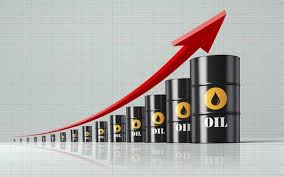Crude Oil Price Hike:

The price of Brent crude crossed the USD 60 per barrel mark after over a year. The rise in prices is because of production cuts by oil-producing countries and expectations of improvements in global demand as the Covid-19 vaccine is rolled out across the world.
- In April 2020, the West Texas Intermediate (WTI) crude slipped below zero for the first time in history, to a negative USD 40.32 per barrel.
- Two crude oils that are either traded themselves or whose prices are reflected in other types of crude oil include West Texas Intermediate (WTI) and Brent.
- Recently, OPEC has been working with Russia, as OPEC+ to fix the global prices and supply.
- In 2016, OPEC allied with other top non-OPEC oil-exporting nations to form an even more powerful entity named OPEC+ or OPEC Plus.
Reasons for Present Price Hike:
- Limited Supply
- Rising Demand
Impact on India:
- Current Account Deficit: The increase in oil prices will increase the country’s import bill, and further disturb its current account deficit (excess of imports of goods and services over exports).
- According to estimates, a one-dollar increase in crude oil price increases the oil bill by around USD 1.6 billion per year.
- India imports 80% of its crude oil requirements and the average price of Indian basket of crude oil has already risen to USD 54.8 barrel for January 2021.
- Inflation: The increase in crude prices could also also further increase inflationary pressures that have been building up over the past few months.
- This will decrease the space for the monetary policy committee to ease policy rates further.
- The government had hiked central taxes on petrol and diesel by Rs. 13 per litre and Rs. 11 per litre in 2020 to boost revenues amid lower economic activity.
- Fiscal Health: If oil prices continue to increase, the government shall be forced to cut taxes on petroleum and diesel which may cause loss of revenue and deteriorate its fiscal balance.
- The growth slowdown in the last two years has already resulted in a precarious fiscal situation because of tax revenue shortfalls.
- The revenue lost will erode the government’s ability to spend or meet its fiscal commitments in the form of budgetary transfers to states, payment of dues, and compensation for revenue shortfalls to state governments under the goods and services tax (GST) framework.




